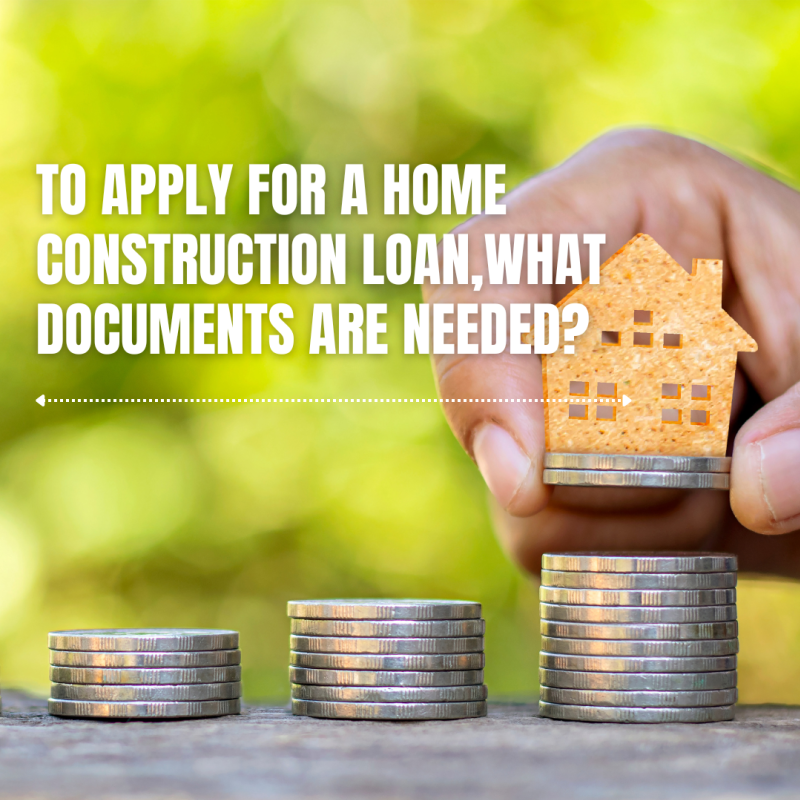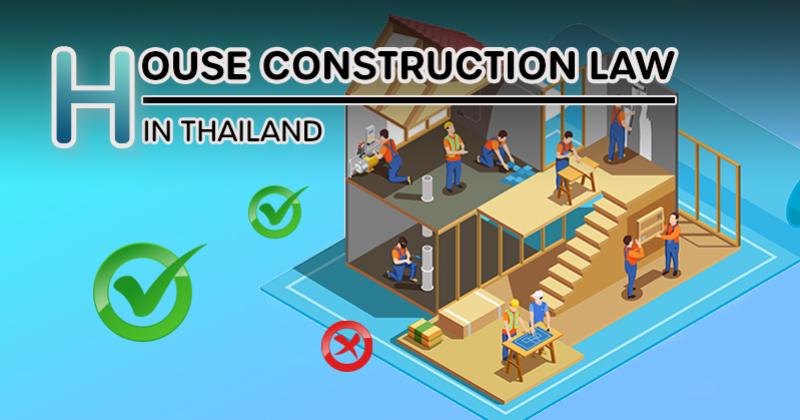
สร้างเมื่อ : 3 ม.ค. 2567
การกู้เงินสร้างบ้าน ต้องใช้เอกสารอะไรบ้าง
การกู้เงินสร้างบ้านนั้น ถ้าอยากให้ได้รับการพิจารณาอย่างรวดเร็ว เรื่องเอกสารเราจะต้องไม่พลาดค่ะ โดยเมื่อเราทำการยื่นพิจารณาขอสินเชื่อสร้างบ้าน แน่นอนว่าใคร ๆ ก็อยากให้ธนาคารพิจารณาอย่างรวดเร็วว่าได้หรือไม่ ขั้นตอนนี้หากเราเตรียมเอกสารไว้ให้ครบถ้วน เมื่อยื่นธนาคารแล้วการพิจารณาอนุมัติก็จะรวดเร็วขึ้นได้นะค่ะ เพราะไม่ต้องมาขอเอกสารจากเราเพิ่มเติม แล้วเอกสารอะไรบ้างล่ะที่เราควรเตรียมให้พร้อมก่อนทำการกู้เงินสร้างบ้านมาดูกันค่ะ
การกู้เงินสร้างบ้าน หรือกู้เงินทำบ้านนั้น นอกจากรายได้ของผู้กู้ที่ธนาคารจะต้องทำการประเมินในการปล่อยสินเชื่อแล้ว ก็ยังต้องมีรายละเอียดของการก่อสร้างอีกด้วย ซึ่งนอกจากเอกสารแสดงรายได้ อาทิ
1. สำเนาบัตรประชาชน
2. สำเนาทะเบียนบ้าน
3. สลิปเงินเดือน
4. สำเนาเดินบัญชีย้อนหลัง 6 เดือน (บัญชีที่เงินเดือนเข้า)
5. หนังสือรับรองเงินเดือน ที่ระบุตำแหน่ง อัตราเงินเดือน ระยะเวลาที่ทำงานมาแล้วกี่ปี
6. สำเนาบัญชีเงินสะสมอย่างน้อย 1 แสนบาทขึ้นไป หรือราว ๆ 10-15% ของมูลค่าบ้านที่จะก่อสร้าง
นอกจากเอกสารข้างต้นแล้วการกู้เงินสร้างบ้าน ธนาคารยังจะต้องดูเอกสารชุดที่ 2 เพื่อประเมินมูลค่าการก่อสร้างบ้าน ประกอบไปด้วย
2. แบบบ้าน
เอกสารการกู้เงินสร้างบ้านอย่างแรกที่ต้องเตรียมให้พร้อมก็คือแบบบ้านหรือแปลนบ้าน เนื่องจากธนาคารหรือสถาบันการเงินจะต้องพิจารณาราคาประเมินทรัพย์สินและประเมินราคาก่อสร้าง แม้เราจะยังไม่ได้สร้างบ้าน แต่เราก็ต้องส่งแบบบ้านหรือแปลนบ้านเพื่อให้ธนาคารประเมินมูลค่าออกมาว่าคือเท่าไร และจะให้กู้เท่าไรครับ อีกทั้งแบบบ้านหรือแปลนบ้านนี้จะต้องนำไปยื่นขออนุญาตก่อสร้างจากสำนักงานเขตพื้นที่ก่อนที่จะสร้างบ้านด้วยค่ะ
3. โฉนดที่ดิน
อีกเอกสารสำคัญในการกู้เงินสร้างบ้านก็คือโฉนดที่จะต้องยื่นไปพร้อมกับแบบบ้าน เพื่อให้ธนาคารหรือสถาบันการเงินพิจารณาราคาประเมินทรัพย์สินและประเมินราคาก่อสร้าง ซึ่งโฉนดที่ดินนี้อาจจะไม่ใช่ชื่อของเราก็ได้นะค่ะ แต่ต้องยื่นยันได้ว่าเราจะก่อสร้างตรงนี้ พื้นที่นี้จริง ๆ นั่นเอง
4. สัญญาว่าจ้างรับเหมาก่อสร้าง
การพิจารณาเรื่องงบประมาณในการก่อสร้างทั้งหมดจะสามารถดูได้จากสัญญาว่าจ้างรับเหมาก่อสร้าง ซึ่งในการกู้เงินสร้างบ้านนั้นธนาคารจะของตัวสัญญานี้ไปดูครับว่าเป็นเงินเท่าไร เพื่อให้มั่นใจได้วว่าหากอนุมัติให้กู้แล้วเงินจะไปอยู่ที่ค่าก่อสร้างจำนวนเท่านี้จริงๆ ตามที่สัญญาระบุไว้
5. ใบอนุญาตการก่อสร้าง
อีกหนึ่งเอกสารสำคัญที่จะต้องส่งในการกู้เงินสร้างบ้านก็คือ ใบอนุญาตการก่อสร้าง ซึ่งสามารถขอได้สำนักงานเขตท้องถิ่นในพื้นที่ที่จะก่อสร้างบ้าน โดยเอกสารใบอนุญาตการก่อสร้างนี้จะแสดงให้เห็นว่าผู้กู้มีจะมีการก่อสร้างที่ถูกต้องตามกฎหมาย และประกันว่าการก่อสร้างบ้านจะไม่เกิดปัญหาอะไรที่อาจกระทบต่อการกู้เงินสร้างบ้านที่ทางธนาคารหรือสถาบันทางการเงินจะอนุมัติสินเชื่อสร้างบ้านให้
6. เอกสารส่วนบุคคล
ต่อมาเป็นเอกสารส่วนบุคคลของเราค่ะที่เราเตรียมง่ายมากๆ แต่ต้องหามาให้พร้อมก่อนการกู้เงินสร้างบ้าน ไม่ว่าจะเป็น
7. เอกสารทางการเงิน
นอกจากเอกสารส่วนบุคคลของเรา และเอกสารเกี่ยวกับบ้านที่เราจะกู้แล้ว เรื่องเอกสารทางการเงินก็เป็นสำคัญในการกู้เงินสร้างบ้านเช่นเดียวกัน สำหรับเอกสารทางการเงินนี่มักจะแบบเป็น 2 กลุ่มด้วยกัน นั่นก็คือกลุ่มพนักงานประจำและผู้ประกอบอาชีพอิสระ
พนักงานประจำ
ในส่วนเอกสารทางการเงินของพนักงานประจำที่จะต้องเตรียมให้พร้อมตอนยื่นกู้เงินสร้างบ้านก็คือดังต่อไปนี้ค่ะ
ผู้ประกอบอาชีพอิสระ
ในส่วนเอกสารทางการเงินของผู้ประกอบอาชีพอิสระที่จะต้องเตรียมให้พร้อมตอนยื่นกู้เงินสร้างบ้านก็คือดังต่อไปนี้ค่ะ
วันนี้ทางเพจของเราได้มานำเสนอข้อมูลเกี่ยวกับเอกสารที่ต้องใช้ในการกู้สินเชื่อสร้างบ้านหวังว่าจะเป็นประโยชน์ต่อทุกท่านที่เข้ามาอ่านนะคะและทางเพจ The Property Center ยังมีบทความดีๆอีกมากมายสามารถเข้ามาอ่านกันได้ ทั้งนี้ลูกเพจท่านใดต้องการให้ทางต้องการหาบ้านหรืออสังหาริมทรัพย์อื่นๆ สามารถนำทรัพย์ของท่านมาฝากเราขายได้ เรามีลูกค้าที่ติดต่อเรามาทุกวันปล่อยให้มืออาชีพทำงานแทนคุณแล้วคุณรอรับยอดขายอย่างเดียว The Property Center ยินดีต้อนรับท่านเจ้าของบ้านทุกท่านค่ะ เรามีทีมงานโพสต์ตามสื่อออนไลน์ต่าง ๆ จัดทำโฆษณาลงโซเชี่ยวและมาร์เก็ตเพลสต่างๆ แทนท่าน บริการเหล่านี้ฟรี เพียงแต่เราคิดค่านายหน้า 3-5% เท่านั้น ติดต่อเราด่วนค่ะ
ขอขอบคุณข้อมูลจาก:
https://www.baania.com/article

